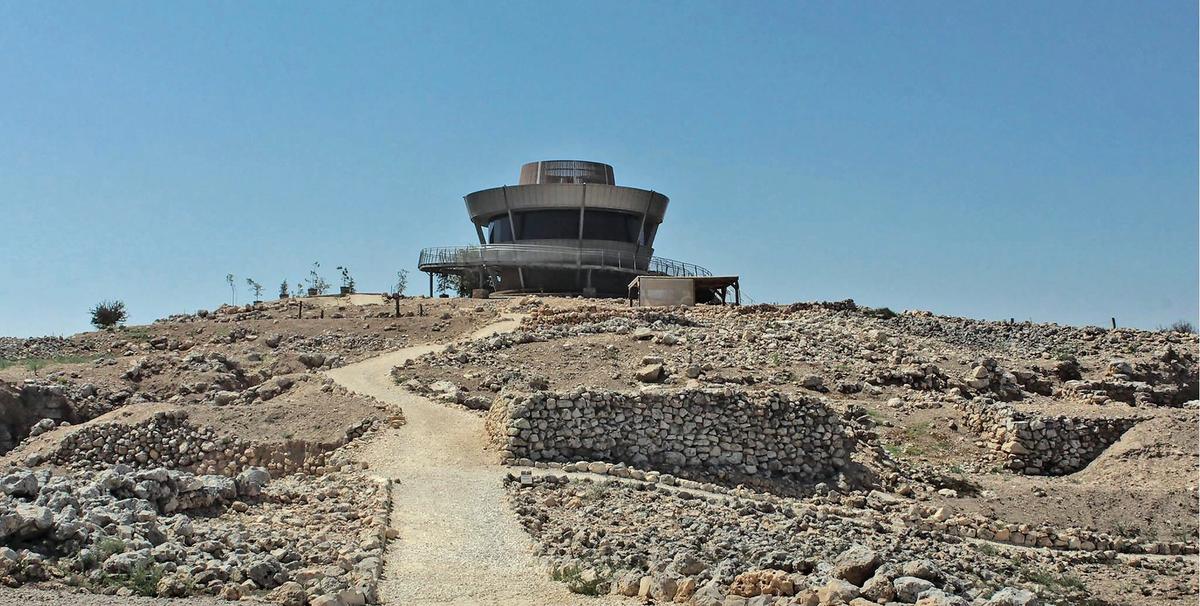An Israeli Supreme Court ruling that a West Bank archaeological site must be accessible to visitors of all religions, and display findings from all cultures and historical periods, could have far-reaching effects at other heritage sites in the West Bank and Israel.
The decision, handed down in February, is legally binding for Israeli planning authorities and unprecedented, says Eitay Mack, the lawyer who argued the case on behalf of the Israeli archaeological organisation Emek Shaveh. The group pursued the petition after plans to expand a commercial tourist centre emphasising Jewish heritage at the Tel Shiloh archaeological park were approved by an Israeli planning committee.
Tel Shiloh is promoted as the location of the Tabernacle, described in the Hebrew bible as a moveable, holy structure where God communicated with Moses and the Israelites. But “there is a debate among scholars as to whether the Tabernacle was really there”, says Israel Antiquities Authority archaeologist Benny Har-Even. “We don’t know archaeologically, but it was there according to the Old Testament.” What excavations at the site have revealed are artefacts or structures representing the Bronze, Iron, Persian, Hellenistic, Roman, Byzantine, Muslim, Crusader, Mamluk and Ottoman eras, Har-Even says.
Tourists at Tel Shiloh face “dissonance”, Mack says, because labels in Hebrew and English primarily underscore the Jewish biblical history about Israelites and the Tabernacle, while many of the ancient buildings and artefacts on display date from the Muslim and Byzantine periods. “We are fighting to have all the periods included,” Mack says.
Visitors to historical sites in Israel and the West Bank “seek something specific…that will confirm our beliefs, religious or political”, says local travel writer and guide Yuval Ben-Ami, who runs multi-narrative tours. “Yet if we aren’t careful we end up disregarding other important layers of history and the living layer of the present. Tel Shiloh was a [Palestinian] village until not long ago.”
Will Jerusalem comply? Questions over who has access to visit heritage and holy sites and which aspects of history are promoted at them, and in what language and under whose authority, remain flashpoints in the Israeli-Palestinian conflict.
Nowhere are these issues more explosive than in Jerusalem, where it remains to be seen if heritage sites will voluntarily follow the Supreme Court’s directive to be more inclusive and accessible, subjects that could have the power to influence peace negotiations and possibly Israel’s relations with neighbouring Jordan. Further lawsuits may be necessary to make sure heritage sites comply with the ruling, Mack says. It is not clear how broadly the Israeli courts will define the terms “heritage” or “historical sites”, but definitions of these often comprise holy sites.
In the walled Old City of Jerusalem, which is divided by Jewish, Muslim, Christian and Armenian quarters, Israel has for years been excavating tunnels that run largely under the Muslim Quarter. The tunnels contain and run adjacent to structures that are important to Judaism, Christianity and Islam, though the subterranean tours emphasise Jewish history. Muslim and Christian Arabs have long complained that their history is minimised or ignored. Reverberations are also felt around the entire Muslim world during Jewish holidays and periods of unrest when Israel limits the number of Muslim men permitted to pray at the ancient Al-Aqsa mosque, Jerusalem’s most important Muslim holy site.
Even as Jordan and Israel co-operate on security and intelligence, the Jordanian monarchy regularly emphasises that restricted access at Jerusalem’s Christian and Muslim sites undermines regional peace efforts. These are Jordanian concerns because Jordan controls the Waqf, the Islamic religious endowment that oversees the Al-Aqsa/Temple Mount esplanade as well as numerous other Muslim and heritage sites, says Jerusalem expert Daniel Seidemann, a lawyer who frequently advises diplomats. “What is a holy site for the devout is invariably a heritage site for the non-believer and those of other faiths, [especially] in Jerusalem. Consequently, the Jordanians [also] have considerable equity in and influence over many Christian and heritage sites that are not sacred to Islam.”
Jordan also felt its role as custodian was violated in March when Israel passed a first reading of a bill proposing to limit how loud mosque loudspeakers can make the Arabic call to prayer overnight and at dawn, if at all. Right-wing Jewish lawmakers describe the bill as fighting noise pollution, while left-wing Arab members of parliament called it racist. Jordan put out a statement charging that such a law, if passed, would trespass on the 1994 Israel-Jordan peace treaty, which confirms Jordan’s authority at Muslim holy sites. The pact also holds Israel and Jordan as partners in promoting freedom of worship, religious understanding, tolerance, moral commitment and peace between the Jewish, Christian and Muslim communities, issues that continue to come into play at numerous sites.


